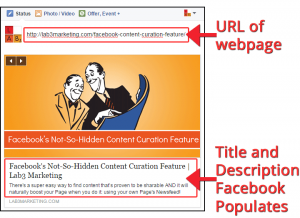Index:
- Conquering Content Marketing in 5 Steps: It All Starts With a Plan
- Conquering Content Marketing, Step 2: The Content (and Plot) Develops
- Conquering Content Marketing, Step 3: Facing the ‘Fans’
Seventy-two years. That’s how long the popular daytime soap opera, “Guiding Light” aired.
What’s amazing about this show isn’t the fact that it is the longest running television drama in history, nor is it the fact that it started as a 15-minute radio show. What amazes me is the fact that it was produced by Proctor and Gamble, yes the same P&G that makes most of the household items you use daily.
Brands like P&G have been telling stories and producing content for longer than we realize. They understood early on that people are more interested in the drama-filled lives of rich, attractive doctors and lawyers than they are in soap commercials. Shocking, right? So they gave away the content for free in exchange for short ads during the commercial breaks.
Fast forward to today. Every company has a website, but most of they time they feel like giant online advertisements. Why would anyone spend time on a site like that? They’re basically commercials, and consumers hate commercials. What’s the solution?
Well, the solution is the same today as it was 70 years ago: give people great content for free in the form of a story. Once you have a captive audience, promote your product. It seems simple, yet so few are able to create and market great content online.
A 5-Point Content Marketing Framework

For those who are struggling with content marketing, here is an easy to follow framework:
- Plan
- Create
- Optimize
- Distribute
- Measure
Each step in this five-point content marketing framework warrants a post of its own, so that’s exactly what we’re going to do. We’ll split this topic up into a five-part mini-series, and we’ll watch it play out through the fictitious story of a young online marketer named Lisa Hughes.
Lisa joined British Outfitters just last week. British Outfitters is a London based apparel company targeting teens. With strong success in the UK market, British Outfitters is making its foray into the US by opening a New York office led by seasoned marketer Don Makerfield, Lisa’s new boss.
Arriving a little early, Lisa takes off her coat and begins to settle into her second Monday on the job when Don calls her into his office for an impromptu meeting.
“Good morning, Lisa. How was your weekend?”
“Hi, Don. My weekend was great. Yours?”
“Fine, thanks. Look, I know you’re still settling in, but our fall lineup will be shipping in a few weeks, and I want consumers to be knocking down retailer’s doors when it hits the shelves!
We need brand exposure for the foot traffic, but we also need strong online sales as well. There’s a lot riding on this.
I need you to come up with a content marketing plan that catches the consumers attention and drives them to our website. Get me the plan ASAP, and we’ll talk budgets.”
Lisa heads back to her desk determined to impress her new boss. She knows what needs to be done.
Step 1: Figure Out Who is British Outfitter’s Target Customer
This seems pretty straightforward. British Outfitter’s make clothes for teens, primarily teen girls. The only catch is that most teens don’t have disposable income, which makes “mom” the decision maker.
However “mom” isn’t going to spend money on clothes her daughter refuses to wear, so the teen is the primary influencer. If Lisa can make teens want it, they’ll convince their parents to buy it.
Step 2: Step Into the Mind of the Target Customer
Where do teens hang out online? The obvious answer used to be Facebook, but the social media giant has lost it’s cool lately.

Instead, teens are spending more time on video and image sharing apps like YouTube, Snapchat, and Instagram.


Clearly this generation is a visual one, and any sort of campaign that gets teens excited is going to have to be centered around the visuals.
Step 3: Identify Emotional Triggers
Researcher Sally Hogshead explains how the human mind has seven emotional triggers:

When these triggers are activated, it forces us to pay attention, and if done correctly it creates a desire. When the desire is strong enough it will bypass our logic and overcome willpower, driving us to take action.
Dealing with teens, you can almost always bet that Rebellion, Passion (Lust) and Prestige are all strong triggers. But moms won’t be keen on those. So the messaging has to be just right: enough to entice teens, but not turn off their moms.
Step 4: Craft the Story
Content is nothing without a good story to tell. If Lisa wants to create a compelling content marketing campaign she’ll need to incorporate some powerful storytelling techniques into her content creation.
The three principles of storytelling are:
- The story must take place in a unique setting.
- The story must have a signature element.
- The story must have some sort of tension: strife, conflict, dilemma, drama or struggle.
The Plan
Back at her desk, Lisa begins to formulate ideas for her campaign…
“It’s got to resonate with teens. Something visual. Something unique, and a little rebellious. Maybe even create some news that could get picked up by the TV outlets.”
Then it hit her, “That’s it!”
Lisa jumped and ran into Don’s office.
“Do you have a minute, Don?”
Don swiveled round, head cradling his phone. “Have a seat” he motioned.
Lisa sat down, anxiously waiting for Don to get off the phone. This was a brilliant idea, and once that phone hit the receiver his mind will be blown!
To Be Continued…
Next time, in “Conquering Content Marketing, Step 2: The Content (and Plot) Develops“: Lisa tells Don about her amazing content marketing campaign. Will Don love it? Will he hate it? Find out as we explore the second point of the five-point content marketing framework.
(687)
Report Post



